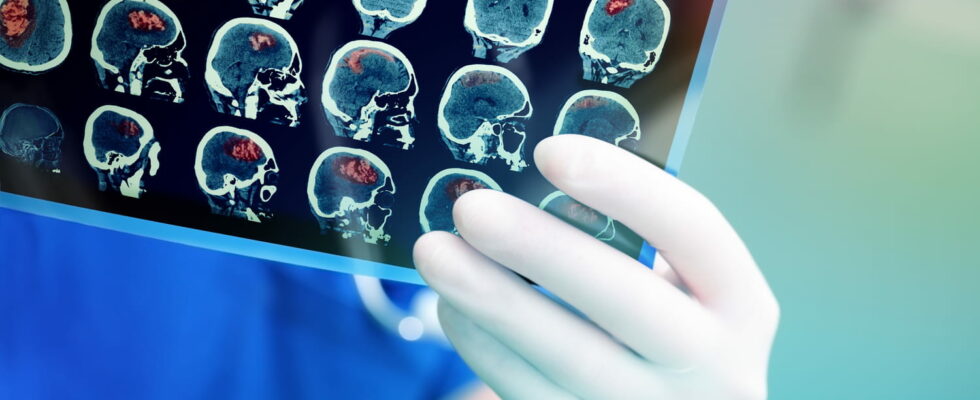Strokes are becoming more and more common among young people. Our doctor has an explanation.
In France, stroke is the leading cause of death among women and the third among men. The annual incidence of stroke is more than 150,000, with more than 30,000 deaths, recalls the HAS. This pathology is no longer the prerogative of the elderly but affects more and more middle-aged people, particularly women before the age of 55.
Stroke occurs when blood flow to the brain is suddenly interrupted, either because a blood vessel is blocked or because a blood vessel is ruptured. Ischemic stroke (blocked blood vessel) is the most common. It mainly manifests itself by a deformation of the mouth, weakness on one side of the body and speech problems, associated or not with intense headaches, balance problems and reduced vision.
If the incidence of stroke continues to increase, it is above all because of the age of the population. “As the population ages and life expectancy has increased, there are more and more strokes”informs Dr Michael Obadia, head of the neurovascular department at the Adolphe de Rothschild Foundation hospital. Another explanation, the improvement of diagnostic means. “Thanks to advances in medicine and brain imaging, we are making more diagnoses than in the past”he continues. According to Public Health Francethe proportion of young people among all strokes was 9% between 1985 and 2002 then 11.8% in 2003-2011. The annual incidence of stroke in those under 55 years of age was 13.7/100,000 in women and 16.1/100,000 in men. We therefore observe a clear increase in the frequency of strokes in young subjects.
Risk factors for stroke are clearly increasing among young people. “More and more people are affected by overweight, obesity, diabetes, high blood pressure, high cholesterol, smoking and a sedentary lifestyle. However, these risk factors are well known and modifiable for 90 % of them”explains the specialist. The prevention of strokes and their relapse requires compliance with health and diet rules aimed at avoiding high blood pressure and hypercholesterolemia. In practice, it is recommended to practice regular physical activity, reduce your alcohol consumption, stop smoking and fight against excess weight by limiting your consumption of salt and fat. “Without this, strokes risk exploding in the years to come”warns Dr Michael Obadia, head of the neurovascular department at the Adolphe de Rothschild Foundation hospital.
